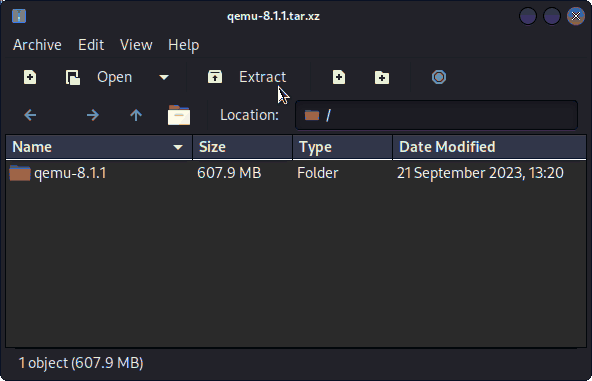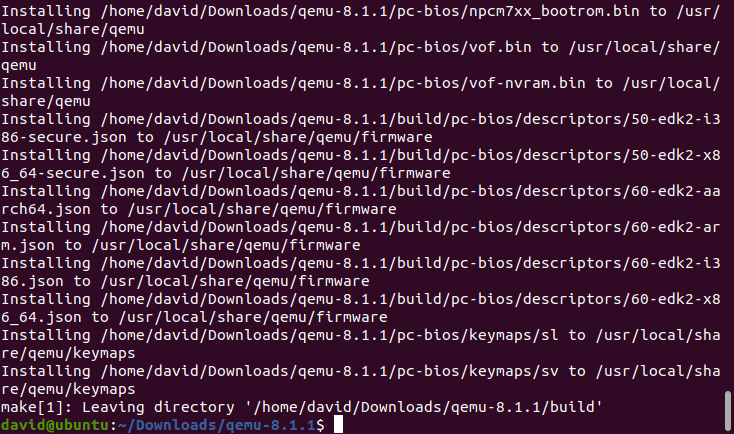Installing
-
2. Pre-Installation Checks
Then Check KVM Virtualization is available
With:egrep -c '(vmx|svm)' /proc/cpuinfo
If in Output > 0 then your Processor support Hardware Virtualization!
Make sure virtualization is enabled in BIOS: Enable Intel VT/AMD-V Guide!Finally, if the answer is negative you can still use KVM but only in a Slow mode…
-
3. Installing Dependencies
Then to Install Required Software
So the Required Packages:sudo dnf groupinstall "Development Tools"
Then again:
sudo dnf install git glib2-devel libfdt-devel pixman-devel zlib-devel bzip2 ninja-build python3 bison flex
Moreover, the Recommended ones:
sudo dnf install libaio-devel libcap-ng-devel libiscsi-devel capstone-devel \ gtk3-devel vte291-devel ncurses-devel \ libseccomp-devel nettle-devel libattr-devel libjpeg-devel \ brlapi-devel libgcrypt-devel lzo-devel snappy-devel \ librdmacm-devel libibverbs-devel cyrus-sasl-devel libpng-devel \ libuuid-devel pulseaudio-libs-devel curl-devel libssh-devel \ systemtap-sdt-devel libusbx-devel -
4. Downloading QEMU
Download QEMU for Fedora GNU/Linux:
-
5. Extracting QEMU Archive
Then Extract QEMU into /tmp Directory
If it does Not Open automatically then Double-Click on File Manager
Or from Command Line:tar xvf ~/Downloads/qemu*.tar.xz -C /tmp/
(But if downloaded with Firefox it may be instead into /tmp/mozilla*)
Finally, if yuo are in Trouble to Find Out it on Terminal See: How to Access Downloads Folder from Browser. -
6. Installing QEMU
Then to Install QEMU on Fedora
First, access the Download location by default with:cd ~/Downloads/quemu*/
But if you are in Trouble to Find it out on Terminal then See: How to Access Downloads Folder from Browser.
And then to Configure it play:./configure
Next, to Make it:
make
Or to do it Quicker using your full Computing power:
make -j $(nproc)
Now take a very Long Brake and just leave it achieving the 10000 Steps… :)
Finally, to Setup it just run:sudo make install

Congratulations, you are Done! :)
Contents